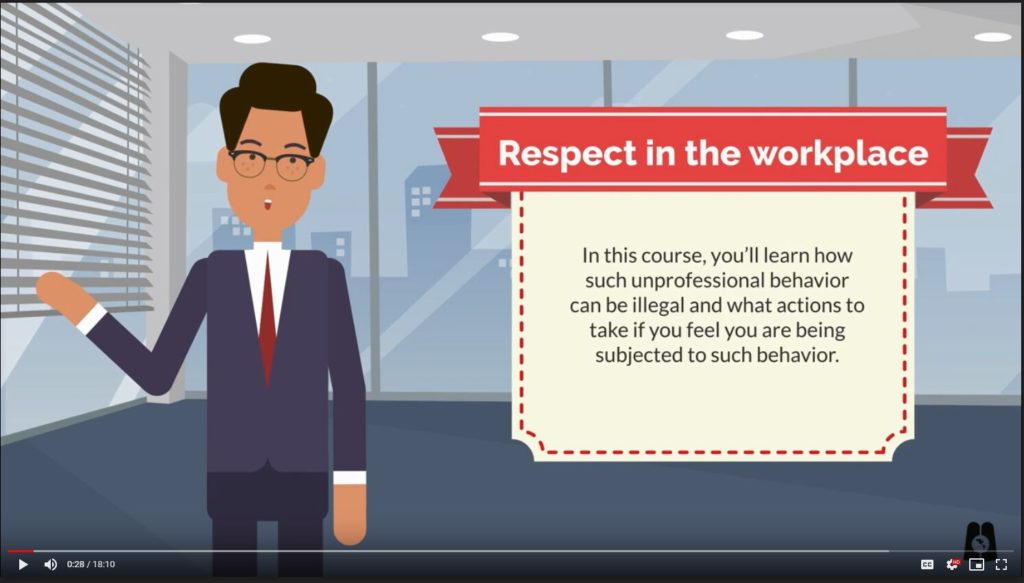What does a company do when following the law means compromising its moral standards?
In the spring of 2018, both New York State and New York City enacted new legislation to discourage gender-based harassment. Under N.Y. Labor Law Section 201-g, all NY employers, regardless of size, must adopt and distribute a written anti-harassment policy. This includes nonprofits such as shuls, yeshivos, and summer camps. The employers must also provide interactive annual training, covering specific topics, to all employees by October 9, 2019.
Religious Employers Are Concerned
To assist with compliance, NYC created a model training program. In response, many frum employers reached out to Agudath Israel of America for help. They had several concerns about the model government training program:
– The language and content of the materials are entirely inconsistent with the sensitivities of the religious community.
– If a company wanted to hold its own live seminar, led by an employment law attorney, the law requires that the training be interactive. However, live interactive seminars, especially in a mixed gender setting, may lead to immodest discussions.
– Although NY allows a company to create its own training program, the materials must meet or exceed the NY model minimum standards. Creating an alternative program like this requires considerable legal expertise.
Agudah Answers the Call
Seeing an unfilled need, an Agudah team, led by the organization’s Lefkowitz Leadership Initiative Director, Rabbi Shai Markowitz, and Chief of Staff, Avrohom Weinstock, Esq., began researching what it would take to create a fully compliant, yet culturally sensitive, training program.
First, Agudah turned to its rabbanim for guidance, who enthusiastically supported the project. They fully backed the spirit of the law to safeguard and ensure appropriate intergender interactions in the workplace. Their only concern was the packaging of the training program, which Agudah could address by creating a custom course.
Agudah teamed up with Avi Singer, CEO of showd.me, to create a custom, computer-based, training program. Singer’s company specializes in employee training platforms, so he brought a high level of experience and professionalism to the project. Then, the teams consulted with two Employment Law Firms to ensure legal compliance. Special thanks to the Harry H. Beren Foundation Z.B, whose generous grant helped make this novel compliance project possible.
Upholding All Standards
After months of work, and countless revisions to content, visuals, and presentation in balancing the legal and sensitivity requirements of the course, the final product is now available to the public. The program achieves its goals in both the legal and religious arenas:
– Reviewed by legal specialists to ensure compliance with city and state standards.
– Sensitive language and treatment of this delicate topic, to ensure the substantive points are made, but without a needlessly explicit presentation.
– Online training format, which allows employees to take the course in a private setting, while satisfying the interactivity requirement via answering knowledge check questions.
– Available to all shuls for free.
Moreover, the Agudah has used this opportunity to strengthen moral standards in the workplace overall. Paired with this initiative will be short video messages from various leading rabbinic figures to provide much needed guidance for kedusha for today’s frum working professional.
The course is available to NYS employers for a small fee. Early responses have been positive.
For more information, please contact Rabbi Shai Markowitz at [email protected].












3 Responses
Now, I have a gemoro here with lots of sensitive language. Can I assume the agudah will be coming up with a new and improved version of that as well?
Editor: please change Reb Shia Markowitz’s name to correct spelling.
Shia, not Shai.
@rebbeyid hence gemara is not learned in a mixed setting… and note that the sensitive language of the gemara is essentially euphemisms, as certain words simply do not exist in Hebrew.